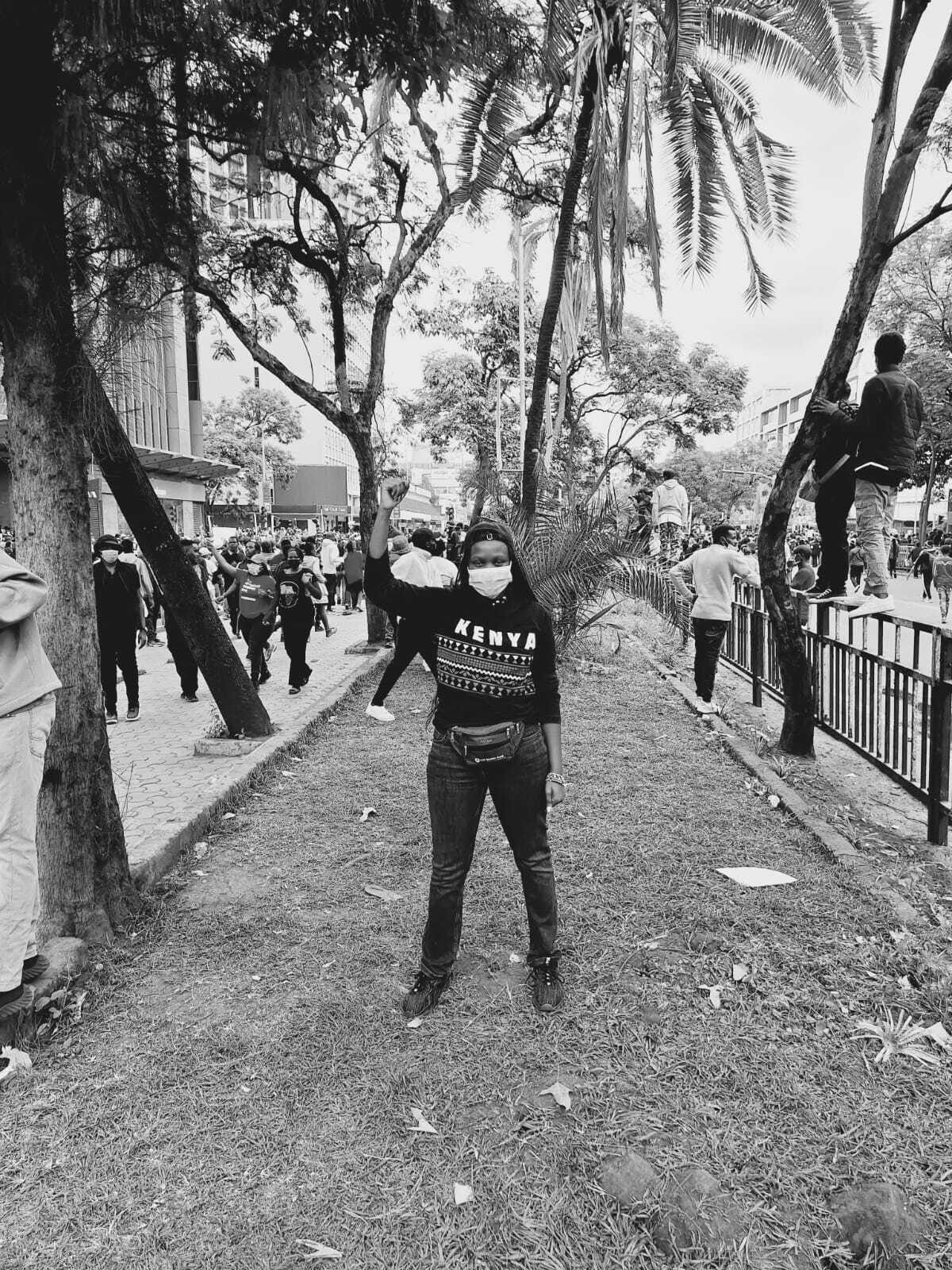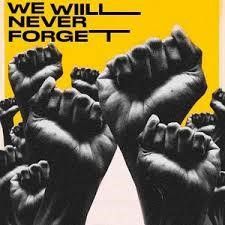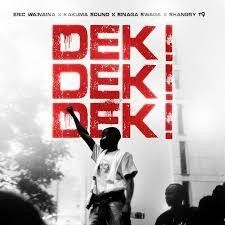It was brutal. We sang the national anthem, we danced on the streets—and yet, we were tear-gassed. In 2024, just as in generations before us, music became our battle cry, our form of protest, our way of demanding change.
Storytelling is deeply embedded in African culture, and Kenya is no exception. This rich tradition has helped preserve history across generations, often through art forms that resonate with people. Music, in particular, has long been a powerful medium of storytelling. From the defiant beats of Unbwogable in the early 2000s to the soul-stirring anthems of recent years, Kenyans have consistently turned to music to voice their frustrations, hopes, and resilience.
The Gen Z Protests and Music as Resistance

A photo of a protester during the Gen Z protests. Photo by TREVOUR MALOBA
The year 2024 was one of upheaval. Young Kenyans took to the streets in unprecedented numbers, demanding accountability, justice, and change. Armed with nothing but placards, chants, and their voices, they stood in defiance of a system that had failed them. But the government’s response was brutal—over sixty lives were lost to police brutality, countless others were injured, and peaceful protests were disrupted by tear gas and violence.
Through it all, music became both a shield and a weapon. Protesters sang as they marched, their voices rising above the chaos. Songs of defiance, remembrance, and resilience echoed in the streets. It was a reminder that, no matter how hard the state tried to silence them, they would not be broken.
Fancy Fingers’ ‘We Will Never Forget’ and the Language of Loss

We Will Never Forget EP cover - Source: Spotify
Fancy Fingers, of the legendary band Sauti Sol, captured this moment in history through his EP We Will Never Forget. The project was more than just music—it became a memorial, a time capsule of grief, anger, and hope.
One of its most haunting tracks, Lala Toto Lala, served as a lullaby for the young lives lost to police brutality. The soft melody contrasted with the devastating reality of children dying at the hands of those meant to protect them. It was a song of mourning, of love, and of a nation reckoning with its losses.
Say Their Names went further, ensuring that the fallen would not be forgotten. In a country where injustice often fades into silence, this song insisted that these names—these people—must be remembered.
Then there was Whips za Zakayo, a bold critique of government failures. Through sharp lyrics and compelling rhythms, Fancy Fingers called out the leadership that had neglected its people. The song was not just a protest—it was an indictment.
Other Artists Joining the Chorus of Resistance

Dek Dek Dek cover - Source: Spotify
Fancy Fingers was not alone in this movement. Other artists lent their voices to the cause, turning their platforms into spaces of activism. Charisma, known as Luhya Heat, amplified the frustrations of the youth on his platforms. Eric Wainaina’s Dek Dek Dek captured the urgency of the moment, reminding Kenyans of the collective power of a people refusing to be silenced.
Collaboration was key in this resistance. Njoki Karu, Ochiko, Lisa Oduor-Noah, Jojo, Mordecai Dex, and ItsDeco came together to create music that both inspired and mobilized. This was not just about individual songs—it was about a movement, a cultural shift, a declaration that Kenyans would not back down.
The Role of Art in Kenyan Activism and Memory
Kenya has a long history of using art to resist oppression. From colonial-era protest songs to post-independence political anthems, music has always been a tool for change. The songs born from the 2024 protests continue this legacy. They are a bridge between generations, carrying forward the spirit of those who fought before and lighting the way for those who will fight after.
Storytelling for the Future
These songs are more than melodies—they are history. They document the pain, the struggle, and the resilience of a people who refused to be silenced. They remind us that our voices matter, that music is power, that storytelling is resistance.
As we sing them, we honor those who marched. We remember those we lost. And we remind the world that Kenya’s fight for justice is far from over.
Today, as new challenges emerge and the rhythms of resistance evolve, this music remains a powerful reminder that the fight for justice is never silent, and the soundtrack of change is always playing.
